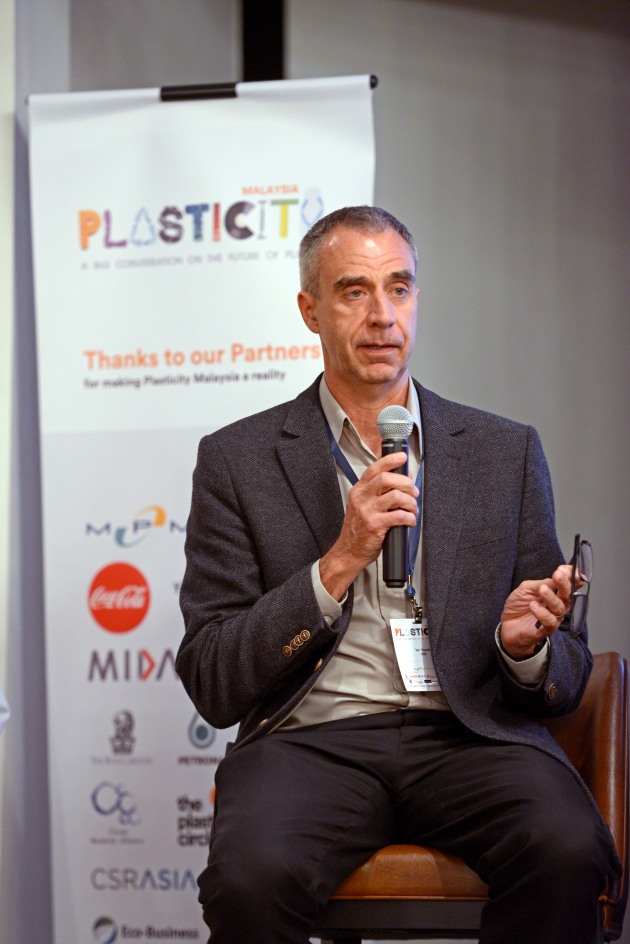Back from a six-year stint abroad, well-known and highly regarded packaging technologist Ian Hayes has returned to take up the role of packaging development manager at Simplot Australia. Lindy Hughson caught up with him in his first week on the new job.
You’ve held some interesting roles in your career to date, across blue-chip brands in FMCG and pharma. What have been your career highlights?

I have been very fortunate to have worked in the FMCG, pharma and consumer healthcare industries in a variety of locations:Australia, Singapore, Germany, Saudi Arabia, Singapore (again), the UK, and home again in Australia. Most recently, heading up GSK’s global packaging team for Consumer Healthcare has been a real highlight. Firstly, because we were able to create the organisation structure in a way that delivered best outcomes for the business while also allowing individual team members more empowerment and the ability to bring their best creative insights. The team’s delight in being empowered was reflected in their business performance.
Also, being part of Golden Circle’s award-winning juice bottle remains a highlight. The design changed the look of juice packaging. But it did present challenges in all parts of the supply chain (from bottle manufacture to filling, labelling and capping). Meeting these challenges and then winning the Package of the Year in 2010’s Packaging Awards was such a rewarding experience.
What packaging discipline do you find most interesting and why?
Part of the delight of working in the packaging industry is the sheer diversity of programs and disciplines that we become engaged in. I think polymer science and flexible films remain an area of high interest simply because of the level of innovation and development. I can remember seeing the first coated barrier films coming on to the market in the mid-‘80s and how we were able to institute packaging changes that drove down packaging weight while enhancing the consumer experience. We introduced multilayer films as replacements to older packaging formats back in the ‘90s to drive costs down and reduce weight. Now, as an industry we are looking to more sustainable options such as bilayer and monoweb materials that have comparable properties to the multilayer formats.
How do you think the Australian packaging industry fares on the global stage when it comes to a) innovation and b) sustainability?
The Australian packaging industry punches above its weight. One only has to look at the publicity that the Australasian Recycling Label achieved in Europe in 2019 where it was assessed as being something of a best practice example for global recycling labels due to its design clarity and simplicity.
The Australian market is always going to be challenged due to its smaller scale compared to Europe and the Americas, but this can also be an advantage. An argument can be made for a packaging multinational to bring its new developments where smaller volumes may make it easier to ‘test and learn’ new formats in a market that is well managed and controlled. As well, the world is shrinking, being connected with global best practice packaging will enable us here in Australia to drive our own packaging innovation agenda more easily than ever before.
From a sustainability perspective, I believe the opportunity we have is to bring a more holistic circular economy approach to how we think about our packaging. As we consider the infrastructure we need to invest in, how much of that will enable genuine circularity? For example, it is great to see UK company ReNew ELP building a chemical recycling plant in the UK using Australia’s Licella technology. How great would it be to have a similar plant using Licella’s technology built here in Australia?
There’s no place like home, and there’s no place like the Australian packaging industry. True or false?
Very true Lindy – there’s no place like home! We wouldn’t trade our overseas experiences for anything; we were very fortunate to travel and visit so many amazing locations. But being back in Australia with family and friends is marvellous.
Being back at Simplot is something of a homecoming as I worked here in the early 2000s. Simplot’s values of Respect for Resources, Spirit of Innovation and Passion for People definitely resonate with me. Respecting these values will allow us to achieve so much from a packaging perspective. Bringing innovative packaging to enhance the consumer experience while driving a sustainability agenda will be key focus areas. It is a great company which has so many well known and loved brands that have been part of Australian families for generations and I am really excited about the opportunity.
And I look forward to being part of the Australian packaging industry, bringing more innovative and sustainable packaging formats to Simplot’s business, customers and consumers.
This article was first published in the March-April issue of PKN Packaging News.






